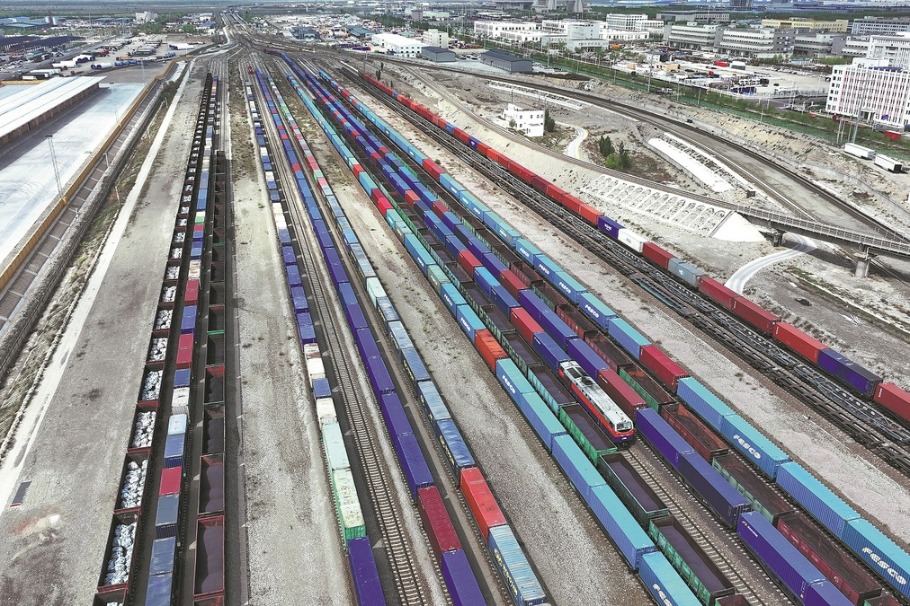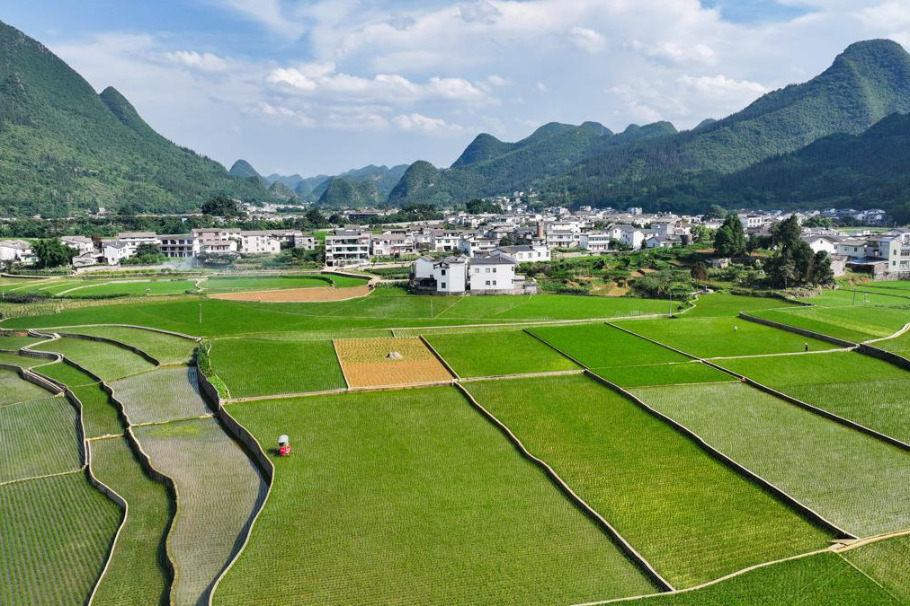Guizhou's cili, Xizang's glacier water join MIIT's specialty food industry list

On June 4, the Ministry of Industry and Information Technology (MIIT) announced its first list of regions to target for developing advantageous food production and specialty food industries. The move is part of a nationwide push to modernize rural economies and strengthen China's specialty food sector.
In a statement on its website, the ministry explained that the list identifies regions with deep cultural ties to locally produced foods, ranging from soy sauce to specialty teas, and strong potential to scale up through advanced processing, branding, and wider market distribution.
Local specialty food is identified by a strong association with its place of production. For example, when people hear Longjing tea, they immediately think of Hangzhou. That direct link between product and origin is the essence of this designation.
This measure is crucial for spurring growth in the food industry. "Traditional food-producing regions and local specialty food industries are critical growth engines for our food sector," the ministry stated.
Among the areas targeted are Guizhou's cili (Rosa roxburghii) juice cultivation zone and Xizang's highland natural drinking water region, which are areas known for specialty products that have contributed to local livelihoods.
The cili grown in Liupanshui, Guizhou, is a fruit celebrated for its sweet-tart flavor and vitamin richness. According to local media, cili plantations covered roughly 1.18 million mu (about 78,400 hectares) across some 209,800 farming households in Liupanshui by the end of 2024.
"Being placed on the key-cultivation list raises our profile and connects us with new consumers," said Liu Sheng, deputy general manager of Chu Hao, a local firm that exports its cili products to Canada, Laos, and beyond.
"More farmers will join our standardized cili planting and processing," said Fei Jianjun, chief engineer at Guizhou Hengliyuan Natural Biological Technology. "They will learn advanced cultivation techniques and see their incomes rise."
In Xizang, natural water producers have welcomed their inclusion on the list. The region holds nearly 500 billion cubic meters of freshwater resources, accounting for 16.5 percent of the national total. It ranks first in per capita water availability in the country and is recognized as one of the world's best sources of freshwater, according to the region's industry and information technology bureau.
The region now boasts over 60 production lines with a combined designed capacity of more than 5 million tons and 56 licensed natural drinking water companies. Since 2012, output has quadrupled, with average annual growth above 20 percent, bureau data shows.
One of the firms in Xizang, 5100 Xizang Glacier Spring Company, processes over 500,000 metric tons of mineral water annually. "We're creating local jobs and sponsoring scholarships," explains general manager Wang Hua.
In a notice from MIIT in 2024, one aim of issuing the list is to boost farmer employment and incomes, drive regional economic development, and support rural vitalization and common prosperity.
Central to the ministry's framework is standardizing production processes. Recommended standards released last year include a complete industry chain, access to testing and quality control, management system certification, and, crucially, no food-safety incidents in the past three years.
"Markets evolve, and consumers' demands are growing," explained Liu. "Only through standardized, large-scale production can we break into e-commerce and international markets."
"Chain-wide integration brings many benefits, such as simpler product development and unified quality standards, which will undoubtedly boost growth," said Fei.
MIIT plans to review the cultivation list every three years, removing regions that fail to meet standards after a rectification period.
The initiative dates back to March 2023, when MIIT and 10 other ministries issued guiding opinions on cultivating traditional food-producing regions and local specialty food industries. Targets for 2025 include promoting at least five regions, each generating over 100 billion yuan in annual operating revenue, and 25 leading enterprises, each with a figure exceeding 10 billion yuan.
MIIT has pledged ongoing guidance to help local authorities prioritize projects and foster a "hundreds of flowers blooming" landscape for specialty food industries.
"We also look forward to more supportive policies and the rollout of special bonds," Liu concluded.
According to China Central Television, China already boasts more than 450 specialty food production zones, with a combined industry output exceeding 2.5 trillion yuan ($348.18 billion). The nation's food processing sector is a nearly 10 trillion yuan industry, making China the world's largest food-processing country.
- Guizhou's cili, Xizang's glacier water join MIIT's specialty food industry list
- Media tour showcases Beijing's tech innovation hubs
- Express delivery growth remains strong
- China's food system at risk from intl market volatility, warn reports
- Shanghai's iconic landmarks commemorate World Blood Donor Day
- Campaign launched to help public avoid online fraud





































